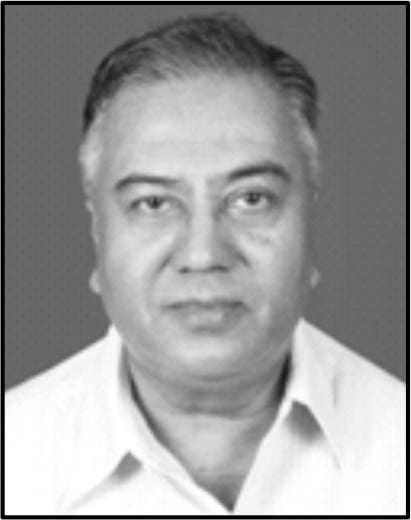RESPECTFUL HOMAGE TO ACHARYA
I am grateful to U. Ve. Prof. Alwar Swami for giving me this opportunity to pay my respectful homage to U. Ve. Prof. M. A. Lakshmithathacharya Swami. It has been my good fortune to have come to know Lakshmithathachrya from a young age as the illustrious son of Panditaraja U. V. Alwar Tirumalai Iyengar Swami, who was the revered Acharya of my parents as well as myself. Just like his grandfather Tarkatirtha Lakshmithathacharya and the father, Lakshmithathacharya became a renowned scholar of Nyāya and Viśiṣṭadvaita. He also acquired a deep knowledge of many other Śāstras and Kalās. He became one of the pioneers in applying tools of modern information and other technologies for the preservation, study and propagation of many of our Śāstras, and also for initiating several research programs focused on contemporary applications of our ancient knowledge.
I have been privileged to know from my father and other elders about the immense effort and dedication that was involved in the founding and development of the Academy of Sanskrit Research at Tirunarayanapuram, which became a world-renowned institution in a very short time. On several occasions, I have enjoyed the wonderful experience of attending several conferences and taking part in some of the activities of the Academy at the kind invitation Lakshmithathacharya Swami. I have also keenly followed the great work being done by the Samskriti Foundation for the past 25 years by Prof. Alwar Swami under the guidance of Acharya.
It is very timely that Samskriti Foundation is organizing a “National Seminar on the Contribution of U. Ve. Prof. Lakshmithathacharya to the Indian Knowledge Systems”. While we hear a lot about Indian Knowledge Systems (IKS) these days, much of the discourse is dominated by sentimentality, or mere bluster, or by narrow interests. We really need to learn from Acharya's repeated emphasis that our great knowledge heritage would be of immense benefit to India and the world only when both our traditional and modern scholars dedicate themselves to a systematic and rigorous study of the large corpus of our Śāstras as well as the living practices of our traditional experts. It is very important for this enterprise that this corpus is made accessible to our students and scholars.
During the last decade, Acharya had initiated a dream project, Jñānāśvattha to build an extensive knowledge structure encompassing the entirety of Traditional Knowledge, unified under one comprehensive platform. Indian epistemology was to serve as the foundation for organizing this knowledge structure, and to connect and link elements in this structure. The ultimate objective was to make traditional texts and media accessible to both the general public and experts alike.
Inspired by these ideas, some of us have made a small effort to first re-organize all the published books related to Indian Knowledge in our Libraries. Currently they are all classified and displayed under the Dewey Decimal Classification (DDC) system that is adopted across much of the world, which scatters all the books on a single Śāstra into diverse locations, does not pay any attention to the traditional links between different Śāstras, and also mixes up source-texts and modern interpretations. We have proposed an appropriate classification system for Indian Knowledge (Indian Journal of History of Science, Vol 59, 2024, pp. 143-158) as a national extension of the DDC. The proposed system is based in the traditional classification of knowledge (Vidyās and Kalās) in India and offers a way of cataloguing that would ensure that the entire corpus of Indian Knowledge is placed together in our libraries and the interconnection between different divisions of the corpus becomes intuitively obvious. We are hopeful that, with the blessings of Lakshmithathacharya Swami, this system will be adopted in our Libraries so that our students and scholars would have easy access at least to the available published works of Indian Knowledge.
